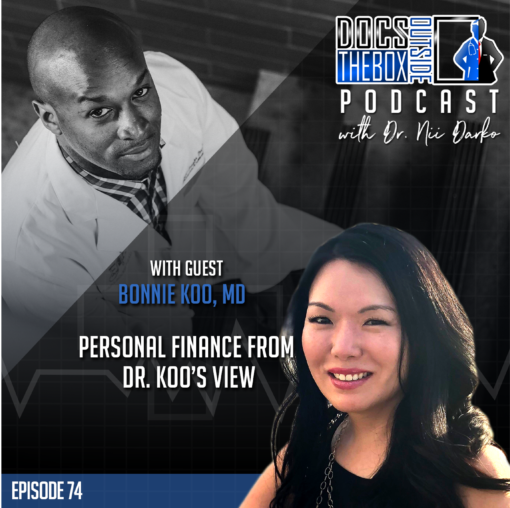Student Loans
When it comes to money and building wealth, the gift tax is often misunderstood. Let's drill down to the bottom of this "gift tax" and find out everything you need to know.
What is a Gift Tax?
The 2023 annual gift tax limit is $17,000 per person or $34,000 per married couple. What do these limits actually mean? It means that a person can give away $17,000 to anyone and to as many people as they would like without having to file IRS form 709 with their taxes.
The reason there is a gift tax is to prevent wealthy folks to give away large swaths of their money to avoid estate taxes at death. Gifting, however, is still a great way to reduce your estate tax limit if you happen to have that much money. The 2023 federal estate limit before incurring taxes is $12.92 million per person or $25.84 million per married couple. It’s also important to note that married couples can share this estate limit. When one partner dies, the other partner may have their $12.92 million plus whatever the other partner didn’t fully use.
What is a Gift?
So you understand the general premise of the gift tax, but there's another important piece of the puzzle: understanding how the IRS defines a gift. A gift is anytime there is a transfer of cash or property without receiving something of equal or fair market value in return. Many of us give gifts to friends, family, co-workers, and staff. But we don't generally buy gifts that cost more than $17,000 (if you do, let me know how I can be friends with you!). The gift limit generally applies toward family members. If Allison gives her son Tim a home that is worth $200,000, then she has given him a gift of $200,000.
While this scenario is unlikely, it is becoming more common for parents to help children with affording homes. Here's another scenario in which the gift tax matters: If Allison sells Tim a home for $50,000, but it is worth $200,000, then Allison gave Tim a gift of $150,000. Another gift scenario that many folks may not be aware of are loans to friends and family that are interest free or below the IRS Applicable Federal Rate. The IRS views these as gifts, not loans. So if you would like to loan money to a friend or family member, you must charge them a minimum amount of interest and report it on your taxes.
Married Couples and the Gift Tax
Married couples, rejoice! One notable perk of being married is the ability to give each other unlimited gifts to your spouse. This only applies, though, if your spouse is a U.S. citizen. If your spouse is not a U.S. citizen, then you are limited to giving them $175,000 a year (in 2023). But wait! Maybe you've heard there's a limit. This limit doesn't involve gifts between spouses, but rather when one spouse or the couple gives a gift to someone else. Here's how it works: The $34,000 per married couple gift limit comes into play when the gift comes from one spouse's bank account but is from the couple. For example, Carol and Jim are married. Carol gives $20,000 to her daughter Janet. $20,000 is over the $17,000 gift limit for an individual. So that would be an issue. However, since Carol is married, the gift can be from the couple and falls within the $34,000 limit. You are supposed to file this "split gift" on IRS Form 709.
Notable Exceptions to the Gift Tax
There are exceptions to the gift tax limit. Phew! Here's some of the most common exceptions: We all know that donations to qualified non-profit organizations don't incur a tax. So do gifts to political organizations. Payments made directly educational institutions for tuition for private school, college etc. are also exempt from the gift limit. Another notable exception is direct payments for medical care. To recap, these exceptions include:
- Gifts to non-profit organizations
- Gifts to political organizations
- Tuition
- Direct payments for medical care
Children and the Gift Tax Limit
The gift limit mainly comes into play for us when it comes to funding our children's education. Many of us contribute to a 529 plan to pay for college. Did you know that your contributions to a 529, ESA, and perhaps a UTMA are all subject to the annual gift limit? One exception to the annual limit is the ability to frontload your child's 529 with 5 years worth of contributions. This means you can contribute $85,000 (5 x $17,000) or $170,000 if married (5 x $34,000) at once. You won't be able to contribute again for 5 years. Note: That this means you have used up the gift limit for all gifts, such as funding an ESA, UTMA, etc.
You're Unlikely to Pay the Gift Tax
Very few of us will ever need to worry about actually paying a gift tax. Even when you go over an annual limit and file IRS Form 709, all it means is that you are reducing your federal estate limit by the amount you over-gifted. In other words, a gift tax is not calculated until you die. In which case, you won't care about owing anything anyway.
What does this actually look like? Let's suppose that you gave your daughter Susan $50,000 and filed Form 709 for the $33,000 that was over $17,000 limit. This means that your federal estate limit is now $11.58 million MINUS $33,000. Clearly, there is still plenty left!
Final Thoughts on The Gift Tax
Tax law is complicated. The rumors and myths that swirl around it muddy the waters even more. However, most of us can breathe a sigh of relief. It would be unlikely for the gift tax to apply to us. Still, arming yourself with accurate information and making sure you know the exceptions to the gift lax laws should help you see through the speculation around gift taxes.
Disclaimer: Please note that some of the links below are affiliate links. This means that I may receive a commission if you purchase through one of my links. I highly recommend all of the products & services because they are companies that I have found to be helpful and trustworthy. I use many of these products & services myself.
Got loans? You’re not alone! Most doctors are finishing medical school with student loan debt well into the 6 figures. Add a few years of capitalized interest during residency and you can really find yourself in the deep end. According to NerdWallet, the average student loan debt for medical students is upwards of $196,000. Yikes!
So, what should you do?
The first fork in the road is to determine whether you’ll be pursuing some sort of loan forgiveness program such as Public Service Loan Forgiveness. Let’s take a look.
Pursuing the Public Service Loan Forgiveness Program
Of course, not having to pay back some, if not most, of your student loans would be the ideal circumstance, but unfortunately there’s a few extra steps than that.
It can get extremely complicated if you don’t do your research to make sure you meet the qualifications:
- You must have Direct Loans
- You must work for a 501(c)(3) employer or work for the government (VA). Virtually all residency programs are 501(c)(3).
- You must sign up for an income-driven repayment plan ranging from 10-20% of your income. PAYE or REPAYE are the best options for most folks.
- You must submit paperwork at least annually
All of the income-driven repayment plans also have their own sort of built-in loan forgiveness programs outside the PSLF, in case you don’t qualify for it. For a complete list of loan forgiveness programs, check out Student Loan Hero’s comprehensive list. For an in-depth look at the PSLF program, check out Student Loan Planner’s detailed guide. Or, if you’re like me and prefer to have an expert help you figure this all out, contact my friend Travis Hornsby of Student Loan Planner.
The rest of this guide will assume you’ve decided to refinance your loans.

Refinancing Your Loans
Refinancing your student loans works a lot like refinancing your mortgage: switching your current loan provider for one with a much lower interest rate, saving you thousands of dollars in interest. The good news: no closing costs!
The only downside is that if you refinance federal student loans, you lose access to federal benefits like loan forgiveness, but many lenders offer loan forbearance, unemployment protection, and/or loan forgiveness at death–so if you go the refinancing route, make sure you research a lender’s benefits thoroughly before selecting.
Honestly, the pros outweigh the cons when it comes to refinancing. You’ll save a lot of money and you can refinance again if you find a lower rate. For those concerned about loans not being forgiven if you die or become disabled, simply purchase enough term life insurance and ensure you have adequate long term disability insurance. Thankfully, many of the refinancing companies do offer some sort of reprieve from both.
Factors that help you get a lower interest rate:
- Current market rates, such as LIBOR
- Your credit score: most lenders are looking for a score in the mid to high 600s.
- Work experience: be sure to include your time in residency–it counts!
- Applying with a cosigner: you’re more likely to get approved with a qualified co-signer, meaning they have a good credit profile.
- Your debt to income ratio: the lower your debt-to-income ratio, the better.
- Applying with multiple lenders: that way, you can compare rates and maximize your chances of getting approved.
- Loan terms: interest rates are generally higher for longer terms
- Fixed vs. variable: Variable rates will be lower but they have the potential to increase over time. If you plan to crush your loans pretty quickly, I recommend choosing variable.
Top (5) Tips to Pay Off Student Loans
- Live like a resident! One of the biggest mistakes physicians make is to increase their spending in proportion to their pay increase once they get out of residency.
- Make a visual representation. Whether it’s an Excel spreadsheet or a physical chart on the wall, it really helps to have a visual to keep track of your progress and motivate you to keep going.
- Refinance those loans! See our recommended list here and get some awesome cash back bonuses!
- Don’t be afraid to refinance again. If rates go down, there is no penalty (fees) for refinancing again.
- Use the debt snowball method to pay those loans down.
Until 12/15/19, Wealthy Mom MD has a special offer for our readers when you refinance with SoFi: an additional 0.25% off your rate. Enroll in auto-pay and receive a total of 0.5% off your rate!
In time, and with a little savvy, you can tackle those student loans and live debt-free! I know you can do it, like so many others before you! You’ve got this!
Read MoreWelcome to another installment of Interviews with Real Female Physicians. The goal of this series is to share their story so that you, the reader, may learn and be inspired from their experiences – good and bad. We all come from different backgrounds and have different situations. Some of you are married, some are not, some with kids, some with blended families. Let’s show other women that any of these can work financially!
So let's introduce our next woman physician rockstar – Jen!!
Tell us about yourself:
I’m Jen, a 31-year-old hospitalist in Tampa, FL. I’m married without kids. I have 2 corgis. I’m an avid reader and baker and a wannabe plant lady. I love internal medicine, it was definitely the right choice for me. When going through my third-year clinical rotations I started with internal medicine and loved it. After that, no other rotation compared so choosing a specialty was easy for me. For current medical students, my advice would be to listen to your gut and try to be aware of how you feel as you are rotating through the different specialties. Are you excited to go into work or are you counting the days until the rotation is over?
Are you a resident or attending?
I am an attending in my fourth year out of residency.
Did you graduate with student loans? How much & what are the interest rates?
Like many of us I paid very little attention to my student loans at the time I was taking them out. So, I actually don’t know the initial amount I borrowed. When I graduated residency the balance was at $180,000. I went to state schools for both undergrad and medical school. I had a full-tuition scholarship for undergrad plus some need-based grants. I had $5,800 in loans when I graduated from room and board costs. In medical school, I received some scholarship money (totaling about 30K) and the rest I paid for with loans. My interest rates ranged from 6-8.5%.
How fast (or not) are you paying them off?
When I graduated from medical school, I still didn’t pay much attention to my loans. Throughout my 3 year residency, I made the minimum income-based monthly payments (~$550/month) which didn’t even cover the interest that was accruing. During my first year as an attending, I continued to make minimum monthly payments and used my new salary to take a vacation every month for that first year.
During my second year as an attending is when I started to become more financially aware, mainly through blogs like this one, and realized I needed to get serious about paying off this debt. I started to make payments of $3,000 per month while I was figuring out my overall financial plan. In January 2018, I refinanced with SoFi. I had $119,000 left to pay off when I refinanced. This year I’ve averaged $8,000 per month in student loan payments and I currently have $49,000 left to pay off.
Looking for advice on what to do with your student loans? Talk to Travis Hornsby @ Student Loan Planner. 
Financial aspects of marriage
Are you married?
I am married. My husband works in higher education as an associate director of student advising at a local university.
Did you get a pre-nuptial or post-nuptial agreement?
We did not have a pre-nuptial or post-nuptial. We got married during medical school so neither of us had any assets to be concerned about at the time we were married.
Do you and your husband agree on finances?
We differ somewhat in our approach to finances. My husband is much more conservative and likes to plan for worst-case scenario, such as keeping a larger amount of cash savings as an emergency fund. I prefer to have a 3-month emergency fund, he prefers to have closer to 6 months. I am also more of a spender. What has worked for us is keeping our finances and accounts separate. We began doing this when we lived together before getting married. We divide the joint household expenses and each pay for our assigned expenses from our individual bank accounts. I pay the rent and utilities, he pays the cars and insurance. We each pay our own student loans. Whatever is left over after the necessary expenses are paid we are free to spend however we want.
Are you the breadwinner?
I am the breadwinner. My salary is about four times what my husband makes. I have not found that it affects our relationship. I think having separate finances and a system for each contributing to the joint expenses has mitigated any negative effects.
Have you experienced a financial catastrophe?
No, thankfully.
General Finances
What’s your FI (financial independence) number?
Our number is 3 million. We used 25x annual expenses plus some additional to account for increased health care costs and assisting our parents as they age.
Who handles the finances in your relationship? Are you DIY or do you have a financial advisor?
I handle the majority of the finances. I use a financial advisor only for my retirement accounts. She is affiliated with our university. Our pay structure and retirement options are complicated so it helps to have an advisor who knows the nuances of our system.
How are you saving for FI/retirement?
I have a 403b and 457b through my university which I am currently contributing minimally to, just $100 to each biweekly while I pay off my student loans. I also have a State University System of Florida ORP to which I contribute a mandatory 3% and my employer contributes 5%. I also have a 403b pension plan which my employer contributes 7.42% to. There is no option for employee contribution. This year I also started using the Roth IRA and put in the full $5,500.
Biggest budget failure/regret:
Not understanding my student loans sooner. I wish I had paid more during residency and had refinanced sooner.
Do you have insurance?
I have a small life insurance policy of $550,000 that my university covers the premiums for. My husband and I do not plan to have kids and we both work so I do not plan to get a larger policy. I also have disability insurance through my university which would pay 80% of my salary if I became disabled. I have an umbrella policy as well.
Do you give to charity? If so, where and why?
I give to Planned Parenthood $25 per month plus an additional $1,000-2,000 per year for special events or campaigns. I give $25 per month to JDRF, Humane Society of Tampa Bay, and Emily’s List as well. I give to various other causes throughout the year as well, whether for the university–a student-run free clinic or for disaster relief after last year’s hurricanes.
Tell readers a fun/random fact about you:
I refuse to eat anything pumpkin flavored because in kindergarten we made pumpkin bread and I ate the whole thing and threw up on the bus ride home. I was scarred for life.
Where can people connect with you?
I’m on Twitter and Instagram @jennifermcaputo or email jennifermcaputo at gmail.
And … that's a wrap! If you're interested in doing an interview, I'd love to hear from you!
I loved reading Jen's story and her no-nonsense approach to finances. I hope you did too!
Read MoreIs the grass greener on the other side? Who really wins when it comes to a 1099 vs W2?
This is a guest post by Dr. Barbara Hamilton who blogs at Tired Super Heroine. She is an interventional radiologist who writes about the challenges of being a physician and mother.
I was an employee and received a W2 during my first three years out of training. At the time, I was working in private practice as a diagnostic and interventional radiologist in California. Working for a national company, I was told that I did not fit the definition of independent contractor (IC), since I had little control over my schedule (sob!). The practice managers felt that IC status would not stand up to IRS scrutiny in my case. Eventually, the radiology company was bought out. As a result, I started working as an IC.
Here are some things I have learned in my first year of earning a 1099 and forming a professional S-corporation.
Different Employee Benefits
While salary is often the first thing people consider when it comes to employment, understanding the different benefits that come from 1099 vs. W2 work is key.
Stability in W2 Work
A co-worker of mine has chosen to remain a W2 employee for the sake of simplicity. He counts on a paycheck every 2 weeks. He does not have to keep track of separate corporate accounts or itemize business expenses. Consider whether you value the simplicity of being an employee over the increased responsibility that comes with self- employment.
Will your status change whether you must pay for your own malpractice coverage? My current group provides malpractice coverage for employees and contractors alike. This may not be the case for you. Liability coverage would be a large business deduction for a 1099 earner, but it would also be a significant expense to account for when negotiating increased 1099 wages.
Evaluating Benefits Packages
As an employee, you receive a benefits package, which has monetary value beyond the salary provided. Often, one of the most significant benefits is access to employer sponsored group health insurance. I was not thrilled with our plan options as an employee, and I still paid a significant amount of the premium. A group life insurance policy was provided free of charge, but it was inadequate on its own. Group disability insurance was provided, but the benefit would be limited to one year, so I still needed my own long term disability policy. Given these factors, the benefits offered were not compelling enough to keep me as a W2 employee.
As an IC, I now see that healthcare options can also be limited due to geographic constraints. Premiums run about $1000 per month for my family of three. We do not qualify for a government subsidy, so we have an off-exchange PPO. With an S-corp, I am able to deduct premiums from our personal return. A C-corp, on the other hand, can deduct these as a business expense. This deduction will be of questionable benefit for us. Previously, I paid half our premiums via payroll deduction. The healthcare equation may look different for you. For example, being employed at a large academic institution, you may receive truly excellent coverage or even free healthcare, as I did during fellowship. This is a valuable benefit for some employees.
Retirement Benefit Options
Some W2 earners will receive a match to their 401k contributions. I received Safe Harbor contributions as an employee, amounting up to $10,600 one year. However, 401k contribution limits were $18,000 in 2018. This limited my ability to decrease taxable income. As a 1099 earner and business owner, I can contribute to a solo 401k as both the employee and the employer, with a combined contribution limit of $55,000 this year. This larger contribution limit will allow me to significantly reduce my taxable income, and more than double my 401k savings rate, even accounting for the Safe Harbor contributions I will lose. This is one of the most compelling reasons I chose to switch to IC.
Professional Development and Continued Learning
As an employee, you may get a stipend to pay for continuing medical education, CME. This is a wonderful benefit because it is money on which you do not pay income tax. This makes it worth more than if you simply added it to your total compensation. I did not receive a CME stipend as an employee. As an IC, I can now easily deduct airfare, lodging, course fees, and other CME related expenses on schedule C.
Revised Tax Law Implications
Standard deductions for personal income taxes have risen with the new tax law. These are now $12,000 for individuals, and $24,000 for married couples filing jointly. This means that if you are paying for any unreimbursed business expenses as an employee, it will now be even harder for you to recoup any money in the form of a tax deduction.
As an IC, I plan to deduct many business expenses. Filing a corporate return this year will increase the cost of tax preparation by $700. That is deductible. Some of the other deductions I’m utilizing include a new cell phone, internet service, and a home office. The latter includes a portion of our homeowner’s insurance and utility bills. Some meals are deductible. A corporation can purchase or lease a business vehicle. A large vehicle with a gross weight of 6000 lb can be fully depreciated in one year, making the purchase price deductible in that tax year. Paying your kids to model for your website can be deducted as a business expense. One can even rent their own home to the corporation for work related events.
Understanding Cash Flow in 1099 vs. W2 Work
As an employee, cash fluctuations are minimal. Paychecks arrive every other week. The employee doesn't need to take direction action since payroll deductions are taken automatically.
My company pays independent contractors monthly. Therefore, there is a longer period between checks, and the checks are larger. Since 1099 earners do not have payroll deductions taken from their income, they must pay estimated quarterly taxes. For many, these payments are large. I have paid estimated quarterly installments ranging $7,000 to $20,000 each, between state and federal taxes. I contribute lump sums to my solo 401k.
These factors can result in wild fluctuations in the corporate account, with periods of depleted cash reserves. As an employee, taxes and expenses are relatively out of sight, out of mind. As an IC, on the other hand, you have both the control and responsibility to make these expenditures, and thus are fully aware of their cost and their effect on your cash flow.
Getting Going as an S-Corp
A new business entity must be registered with the state in which it is headquartered. The optimal business entity may vary based on where you live and work. I chose an S- corporation. The application was submitted by my accountant. In the case of an S-corporation, the company must be registered as a C- corp prior to electing S- corp status. I don't make the rules. Consult your CPA.
Creating an EIN
Your corporation has an Employer ID number, or EIN, which is used as the entity’s tax ID number. When money comes into the corporation, it must be associated with the EIN, not your social security number. Likewise, the EIN is needed to set up business accounts, which are separate from your personal accounts.
Any business account bears the name of, and is owned by the corporation. This structure is required to ensure the money earned receives appropriate tax treatment. Early in the year, I made the mistake of opening a personal account for the business, not associated with my EIN. I later spent a couple of hours at the bank correcting my mistake.
Payroll Decisions
In an S-corporation, a corporate payroll is required. This costs $35 per month with an online platform I use. But note that many payroll companies charge far more. My accountant, for example, charges $80 per month, or $960 per year for this service. Payroll is a deductible business expense, but it remains beneficial to minimize it.
You need to pay your employees a “reasonable” salary. Basically, a reasonable salary is the amount you could theoretically pay someone to replace you. Some estimate this should be 30- 50% of 1099 earnings for the primary employee, say a doctor in this scenario. Using a pass through entity such as an S- corporation, you will save FICA taxes on the remaining income, which becomes corporate profit. You will still pay state and federal income tax on all corporate profit.
Running the Tax Numbers
Run some numbers. As an IC, you will pay self- employment tax, additional accounting fees, and registration fees. The state of California taxes corporate profits at 1.5% with an $800 yearly minimum franchise tax. I wanted to be sure that forming a corporation would reduce my tax liability enough to be worth the trouble because of these additional expenses. My accountant charged $500 to run some theoretical numbers through his accounting software, generating reports of various scenarios. The most important variables are the salary one chooses, and the anticipated corporate profit. Employing a spouse or other family member is an option. This involves paying extra payroll tax for that employee, but it allows them to contribute to their own retirement plan.
I found that the estimated yearly tax savings projects in the five to ten thousand dollar range for my family. Five thousand dollars multiplied by many working years, compounded over time, can add up to a large sum. Therefore, the benefits of being self- employed, relative to the effort required to learn about it, may be greatest early in one’s career. I feel I’m getting the most “bang for my buck,” since this knowledge will benefit my family for years to come.
Final Thoughts On 1099 vs W2 Work
Philosophically, I feel that becoming a 1099 earner and corporation CEO (yes, you really can have that title) has started to change my way of thinking to that of a “business owner.” Learning about my business entity relatively early in my career will allow me to optimize this strategy over time. Additionally, I appreciate the ability to control factors like benefits and business deductions. In order to embark on the self- employment path, one needs a desire to learn about the mechanics involved, and to find a team of qualified professionals to assist. This is not a do it yourself project. Even with help, I will not do everything perfectly the first year. But I’m looking forward to seeing how we did in 2018.
Please note, if you are considering Public Service Loan Forgiveness (PSLF) you should not become an independent contractor. To qualify for PSLF, you must be an employee of a non-for-profit institution.
If you want to connect with Dr. Barbara Hamilton at Tired Super Heroine on social media, you can connect with her on Facebook, Twitter, and Instagram.
Read MoreWelcome to another installment of Interviews with Real Female Physicians. The goal of this series is to share their story so that you, the reader, may learn and be inspired from their experiences – good and bad. We all come from different backgrounds and have different situations. Some of you are married, some are not, some with kids, some with blended families. Let’s show other women that any of these can work financially! So let's introduce our next woman physician rockstar – Melanie!
 Tell us about yourself:
Tell us about yourself:
I am a divorced mother of a special needs kid living in a HCOL area on the West Coast. I have been an attending obstetrician gynecologist for over a decade. Pretty much went straight through school with only a year off and I count my blessings that I didn’t take my sweet time. I think if I were to pick a specialty at this age it would be dermatology [Editor's note: It is THE best field]. But having picked my specialty in my 20’s, it was the right one for me at the time. I loved the subject matter: deliveries, surgeries, clinic, women’s health, birth control, abortions.
But the wear and tear on my body and my psyche have been immense over the last 14 years. A more peaceful practice with flexibility to raise my kiddo sounds amazing right now. I grew up on the East Coast and although I love the West Coast weather and all the wonderful hiking, skiing and climbing it affords me, I regret not staying closer to home so that my parents can watch my child grow up.
Did you graduate with student loans? How much & what are the interest rates?
I went to a private university and public medical school. I was lucky and my grandfather paid for college. I left medical school with about $35,000 in loans at an interest rate of about 2% that dropped to 1.75% after I paid it on time monthly for a year. I did receive scholarships and loans throughout although I cannot remember how much. I had worked throughout college and medical school in work study programs. I lived in student housing during residency and managed to save about $30,000 during residency.
How fast (or not) are you paying them off?
Because of the low interest rate on my loans I did not pay them off until about 8 years after residency. But enough was enough, I wanted something happy to celebrate that month and paid them off happily. It was also one less bill and account to keep track of on Mint.
If you’re not quite sure where to start or what to do, consider hiring Travis @ Student Loan Planner to help you with your student loans.

Financial aspects of kids
When did you have them?
I had my child when I was already an attending. I made sure I had been working at the job for at least a year to make sure I had full benefits and saved all my vacation so that I could take four months of mostly paid maternity leave.
What are your child care expenses?
He goes to public school with a one-on-one aide paid for by the school district. We pay a nanny about $19/hr to take care of him after school and during vacations, which runs anywhere from $200-$1000/week. The state helps fund a portion of my nanny expenses. I have about $55k in a 529 plan right now that I will likely convert due to the ABLE act for disabilities. We also have a Special Needs Trust.
Financial aspects of marriage
Are you married?
I am divorced.
Did you get a pre-nuptial or post-nuptial agreement?
I had gotten a prenuptial agreement beforehand due to vast differences in finances and the fact that he had been divorced prior to our marriage. I did not want to get married at all but he wanted to, so I acquiesced, and he suggested the prenup. Therefore, I might have ended up poorer due to the marriage to a certain amount but not as much as I would have if we had not had the prenup.
What have you learned financially from divorce, and what advice would you give to unmarried women planning to marry?
By the end of the marriage I made almost 3 times his salary. He got to write both the prenup and the marriage settlement agreement so no wool was pulled over his eyes. Although because he managed all my finances while we were married, I didn’t really understand my finances coming out of the marriage, which frightened me and caused me to become obsessed with making sure I learned everything I could. There is a suspicion that he might have been squirreling away money for himself a year before we separated but I am doing ok without that. I also ended up helping him pay off a large chunk of his student loans while we were married.
Have you experienced a financial catastrophe?
I have been lucky and have experienced no financial catastrophes thus far. I had resigned from a stable well benefited job with a pension over a year ago for the unknown. I currently am barely taking in house call (which I realize I hate), doing part time clinical work and part time contract non-clinical work.
And I absolutely love it!!! When you don’t do the same thing day in and day out burn out is prevented. You don’t get repetitive stress injury and you don’t have to deal with politics at your only place of employment. It is mind blowing and soul freeing! I also have 6 or 7 different streams of income and multiple employers have all asked me for more time so if one stream ever dries up, I will never be without employment. The best thing is that I have found remote non-clinical work that pays 6 figures a year. The downside of contract work is the lack of benefits but my part time clinical job provides the benefits. The part time clinical job is lower paying but unionized and extremely flexible. I love all my jobs now!!

General Finances
What’s your FI (financial independence) number?
Financial Independence is a tricky thing. I guess you can say I am there since I don’t practice as a traditional obgyn. Some of my friends joke that I am retired. I took my first 24 hour call in over a year and realize that is my idea of hell on earth. I wasn’t willing to do it unless my locums company paid 1.5x my normal rate. That is my idea of financial independence. No one can tell me what to do. If I don’t want to do it, I don’t. I have the money to say “No”.
Real financial independence will remain elusive for me because I am a single parent of a special needs child. My child may always need support throughout his life and beyond my life. My goal at this time is to somehow accumulate $30 million in order to fund a community for the disabled not just for my child but also for others.
Are you DIY or do you have a financial advisor?
I do not have a financial advisor but am thinking of getting a robo-advisor that will do tax loss harvesting for me.
What is your net worth?
I have a net worth of $1.8 million dollars.
How are you saving for FI/retirement?
I max out my retirement accounts annually. I have a 401(k), SEP IRA, 403(b) and traditional IRA and have not done a backdoor Roth IRA. I am conservative in my cash investments, mostly in a money market account and I also hold mutual funds/index/bond funds outside of my retirement accounts. I have paid off my home and have no mortgage. I do not know my asset allocation as of this moment as I am trying to figure that out.
Do you have insurance?
I have disability insurance from residency time but not at high amounts. I am in the process of buying life insurance.
What is your biggest financial regret?
My biggest financial regret was not putting excess cash in the stock market 2 years ago after a windfall because I thought the market was too high. After some more reading, it seems the stock market tends to go up a lot more than it comes down and I lost out on the 20% gains on a large chunk of cash that sat in a MMA for 1% interest rate. That is why I need a financial advisor since I am too chicken sh** to invest myself.
Do you give to charity? If so, where and why?
I give to charity: school, special needs groups, ovarian cancer and anyone who asks.
Any parting words of wisdom?
Live life with purpose and happiness now. Do not suffer today for possible better security tomorrow since that day may never come. I have no regrets. There is no room for regrets. Depression and anxiety can happen when you regret the past and worry about the future. Be present now.
There is a reason for everything that happens in your life. Always believe that you are in control of your life and you will be happier. Do not think “things happen to you.”
And … that's a wrap! If you're interested in doing this please follow the instructions here!
Melanie is one kick-ass single physician mom! I'd love to hear from more single moms!
Read MoreWelcome to another installment of Interviews with Real Female Physicians. The goal of this series is to share their story so that you, the reader, may learn and be inspired from their experiences – good and bad. We all come from different backgrounds and have different situations. Some of you are married, some are not, some with kids, some with blended families. Let’s show other women that any of these can work financially! So let's introduce our next woman physician rockstar – Heather!
Tell us about yourself:
Hello, I’m Heather. I’m family medicine and a brand-new attending. I practice both inpatient and outpatient medicine at an academic hospital, and enjoy spending time teaching residents and students in addition to my clinical duties. I was born and raised in a medium-sized city in the Midwest with the greater metropolitan area approaching approximately 1 million. Both of my parents are practicing physicians. They gave me a small amount of money toward my education (to be applied toward undergrad), but otherwise the rest has been paid for through scholarships and loans. I came back to the same city to complete my residency and am now just starting faculty. Because my parents both work, they aren’t incredibly helpful with childcare, but it is still wonderful to be close to family! My husband is in his final year of surgical subspecialty training, and also plans to work in the academic setting upon his graduation. I have two young children, and am expecting my third child soon. I can’t say I have much time for hobbies after just finishing my training in a dual-physician household with young kids. In my former life, I enjoyed soccer, skiing, traveling, reading, and spending time outside. I went into medicine because I love helping people reach their greatest health potential. In family medicine, I feel I am in a unique position to do this as I am able to care for patients in the clinic, providing preventative medicine, education, and chronic disease management. When patients are sick, I am able to see them in clinic and also care for them in the hospital. I especially enjoy working with underserved patients, and academic medicine allows me to have a great diversity of patients with the majority of my patients not speaking English. Most days, I am happy with my decision, although it is frustrating the amount of paperwork and non-clinical duties I have to complete. It is sometime frustrating when seen as a lesser physician than specialists, especially when I graduated cum laude from medical school and as a member of AOA, and have such a wide breadth of practice.
Did you graduate with student loans? How much & what are the interest rates?
I went to a state school, and originally took out about $170,000 to pay for my education. Interest rates were between 5.16% and 7.90% and all unsubsidized. I did receive a partial scholarship all four years. I was awarded a full ride scholarship to a different school, but elected to go take out the student loan burden to attend medical school in the same city as my husband. While I would make the same decision again, it is frustrating to think of how my financial situation would be different without this loan burden. My husband graduated medical school with a similar loan burden.
How fast (or not) are you paying them off?
I paid off one loan in medical school, a Grad PLUS loan at 7.90% interest for only $3,000 taken out my first year of medical school. I paid this off my second year, when I was able to take out an unsubsidized loan at a lower interest rate (6.55%, so only a bit improved). I have not yet paid off my loans or refinanced them, although I am in the process of refinancing at the moment now that I am an attending. Although I qualify for PSLF, I am not pursing it as it makes me too nervous. I have paid the bare minimum through income based payments throughout residency, and my loans are now over $200,000 (yikes!). However, we have paid off more than $100,000 of my husband’s loans. We knew that my loans were much more likely to qualify for forgiveness or PSLF than my husband’s, and that I would be an attending sooner (thus able to refinance), so we’ve paid anything we can toward them in residency. I am comfortable with this plan and completely trust my husband, although I understand that some may not take this approach. We plan to continue to pay his off as aggressively as possible, and hope to be done with his loans in about 18 months. We will then aggressively pay mine down, and hope to be done within 4-5 years.
Financial aspects of kids
When did you have them?
I have two kids, and a third on the way. The first was born my fourth year of medical school, and the second in residency. They are both young, and when my next child is born, I will have three children under age four.
Are you planning to fund their college expenses?
Our kids do have 529s set up, although we haven’t significantly contributed to them given our own student debt. We encourage grandparents to gift toward them instead of extra toys for birthdays and Christmas. When no longer with our own debt, we would like to fund them with enough for them to attend an in-state university.
What are your child care expenses?
We have used day care exclusively for my children. I did not feel comfortable with a nanny or spending time alone with infants, so went the daycare option. We are overall happy with our decision, although sick days and drop off/pick up times have been stressors in the past. I currently spend $1200 per child per month, which means I will soon be spending $3600 each month in childcare. This is, by far, our largest monthly expense. We also spend quite a bit more on trusted babysitters (especially college-aged family members) to help us with early morning, late evenings, nighttime, and weekend coverage. Now that I am an attending, I have the luxury of more predictable hours.
Are your kids in private or public school? What is the cost including after care if needed.
We plan to send our children to public school when they start kindergarten, as we have good public schools in our area and like our children to be exposed to diversity.
Financial aspects of marriage
Are you married?
I am married.
Did you get a pre-nuptial or post-nuptial agreement?
We got married in medical school and had no prenuptial agreement – we only had debt at the time!
Do you and your husband agree on finances?
We agree on finances, largely because I am responsible for almost everything financial in my household and my husband agrees with my decisions (and is grateful he doesn’t have to do it)!
What financial mistakes have you made?
I probably could have taken out slightly less student debt as I graduated with approximately $10,000 in my bank account. I did eventually use this to pay down student debt, but was worried about keeping enough of an emergency fund available. I contributed the maximum amount my Roth IRA since I was 16, however, I put the money in and didn’t invest it for quite a while because I was overwhelmed with the options. While I am grateful for this money, I wasted the benefits of years of compounded interest.
Have you experienced a financial catastrophe?
We have been fortunate to have avoided any financial catastrophe. 
General Finances
What’s your FI (financial independence) number?
We don’t have an FI number, largely because it seems too far away at this point. We are aggressively paying down student loans, and then would like to move to a bigger (but still modest) house. I am working 80% as an attending, but would love to decrease that further to 50-60% in the future if financially able (and my department supports this!).
Who handles the finances in your relationship? Are you DIY or do you have a financial advisor?
I handle almost all the finances in our relationship. We DIY. This does result in some mistakes (such as not investing Roth IRA initially, as mentioned above). I do budget through Mint, more to track our spending. Both my husband and I are fairly frugal. We rarely spend money on entertainment, eating out, or travel. Any leftover money not used by childcare, mortgage, monthly expenses, or to replenish our savings/emergency fund goes toward loans. As we finish our training and have more control over scheduling and finances, we would love to travel more.
What is your net worth?
We do own a modest 3 bedroom home. It was purchased at the start of residency for around $175,000, as we had a dog and a monthly mortgage was cheaper than renting a house with a yard. We also knew we planned to be in the city long-term. It is currently valued at $230,000. We are hoping to pay off our student loan burden (or at least be close!) before moving to our “forever” home. I don’t plan on a new build or anything extravagant, but I do wish for a bit more space for our growing family! In addition to our student debt and mortgage, we do have one car loan. When we found out we were expecting our third, we needed something bigger than a compact sedan to accommodate three car seats! We are typically pretty opposed to financing things, but our car interest rate (0.5% for three years) is so much lower than our student loan interest rates (lowest rate 5.16% and most at 6.55%) that we used the money for the car to pay down our student loans and will both be attendings to pay off the car loan before the three years are up. I am fairly conservative and keep at least $10,000 in our emergency fund. I know I could probably get by with much less, given that we are a dual-physician household, but with young kids and a current pregnancy I don’t want to be caught surprised.
How are you saving for FI/retirement?
We both contributed to Roth IRAs maximally from age 16 until starting medical school. Neither of us contributed anything in medical school. We then contributed to our Roth IRAs maximally in residency, but no other contributions. Now that I am entering the attending world, I will have a 403(b) and 457(b). As a university employee, I get fairly generous matching starting next year (2019). We plan to maximize these contributions starting next year. The area of finances I feel most deficient in is investing. We do our investing ourselves. I admit I don’t fully understand investing/the market. Most of our money is in index funds, like the S&P 500. I would like to learn more about this in the next year to better invest my money.
Do you have insurance?
We both have term life insurance, no whole life insurance. We both have personal, own-occupation disability insurance. We have umbrella insurance through our home/car insurance company. We’ve never had to use it. We also just established a revocable trust and updated will.
Do you give to charity? If so, where and why?
We give to charity, although only about 2% of our net income. We would like to give closer to 10-15%, as soon as our loans are paid off. We currently/plan to contribute to our church, our undergraduate university, and local organizations we support.
Any parting words of wisdom?
Our financial plan largely comes from White Coat Investor and Dave Ramsey. We are financial amateurs, but we at least know where our money is going each month and can use that to cut it down to the bare minimum to allow for loan repayment. We are both so excited to be a bit more loose with our money as soon as we don’t have that over our heads!
Tell readers a fun fact about you
I took a month off between residency and starting as an attending, and it was wonderful to spend time with kids, catch up on life/adulting, and be able to read my first book for pleasure in 5 years (whoops!)
And … that's a wrap! If you're interested in doing this please send me an email – I'd love to hear from you!
I loved reading Heather's story and I hope you did too. I was totally inspired about reading how she was able to take control of her and her husband's finances and get on track for financial freedom.
Read More2018 can be summed up with one word – growth.
We moved to a new city with a new baby at the end of 2017. M and I started new jobs. We are still settling into Philadelphia and it does not feel like home yet. We are renting. We were not ready to commit to buying so we renewed our lease for one more year.
After plugging in some numbers in a rent vs. buy calculator it is clear that we need to buy after our lease is up. Financially, our net worth stayed about the same despite both of us maxing out all available tax advantaged accounts (401(k)s, backdoor Roth IRAs, HSAs, funding a brokerage account at Vanguard and investing in a real estate syndication.
How? We sold M's condo in NYC and after taxes and other selling fees–we lost a good chunk of the equity. The market wasn't so hot in 2018 either. We parted ways with our financial advisor and I'll admit that since then I have not been as organized about our investments. I can't even really tell you how our investments did this year! But we continued to invest in the market and ignored what was going on. While many folks are worried about the market downturn, I see it as a sale. With Physician On FIRE and 39point6's help I did my first tax loss harvest.
Our biggest financial accomplishment was paying off my student loans in early 2018! We are debt-free. Obviously, we could not predict the market but I think we made the right choice. I admit it was somewhat anticlimactic but I think being a brand new mom in a new city had something to do with that.
Later in 2018 we had an unexpected loss of income and being debt-free and living below our means was pivotal in weathering that storm.  Jack turned 1 and has a positive net worth! He has a UTMA, ESA and a 529. He will be opening up a Roth IRA soon.
Jack turned 1 and has a positive net worth! He has a UTMA, ESA and a 529. He will be opening up a Roth IRA soon.
Miss Bonnie MD In 2018
I somehow managed to continue working on MissBonnieMD.com and be active on the various physician finance Facebook groups.
In March, I had the honor of speaking at the inaugural White Coat Investor Conference–The Physician Wellness and Financial Literacy Conference in Park City, Utah. I spoke about some of my favorite topics–outsourcing and prenups in addition to estate planning.
All the speakers and topics were fantastic. The best part of the conference was hanging out with online friends “in real life” including my podcast buddy Carrie Reynolds, Dawn Baker, Nisha Mehta, Peter Kim of Passive Income MD and his wife, Hatton1 and so forth. I had already met Physician on FIRE in NYC previously. Oh and of course I got to meet Jim Dahle! In case you missed it, you can purchase the virtual conference and watch every lecture.
During the summer I connected with some of the awesome physician podcasters at Podcast Movement in Philadelphia. I met Nii from Docs Outside The Box, David from Doctors Unbound, Taylor from The Happy Doc, Tarang from Doctor Money Matters and Ryan Gray from Med School HQ. Carrie and I attended the ChooseFI meetup and got to chat a bit with Jonathan. In September I attended FINCON and had the pleasure of hanging out with my physician finance blogger friends. We had quite a group convene in Orlando! One of my favorite parts was meeting british woman doc Nikki from The Female Money Doctor.
I left the conference totally inspired to keep working on this website and help women find financial freedom. I was featured on two podcasts last year: 
I had a blast recording this podcast with Nii at FINCON in Orlando, FL. Not often do I get to “see” who I am chatting with. Nii graciously included my blog in his “Top 5 Personal Finance Blogs for Physicians” episode.
One “dream goal” came true when I got to chat with Farnoosh Torabi about my blog and finances on her So Money podcast. I love her book When She Makes More and highly recommend this book to all breadwinning women! Too bad we didn't get to connect when we were neighbors in Brooklyn! Carrie and I recorded 10 podcasts in 2018! One of them included an interview with Jim Dahle. We hope to do them more often. I wrote a Christopher Guest Post for Physician On FIRE where you can read about my favorite wines. I wrapped up the year by giving two local talks–I spoke to dermatology residents at Jefferson and young Barnard alums about personal finance. I have some big goals for Miss Bonnie MD in 2019:
- Complete redesign of the website
- Write a book
- Increase readership and traffic by 100%
- Increase revenue by 100%
I'm excited about 2019! I hope you've created some written goals to go after this year!
Read MoreWelcome to another installment of Interviews with Real Female Physicians. The goal of this series is to share their story so that you, the reader, may learn and be inspired from their experiences – good and bad. We all come from different backgrounds and have different situations. Some of you are married, some are not, some with kids, some with blended families. Let’s show other women that any of these can work financially! So let's introduce our next woman physician rockstar – The Frugal Physician!
Tell us about yourself:
Hello! Many thanks to Miss Bonnie for having me on here. Like many of you, I’m a multitasking, sometimes malwired machine that runs on caffeine. You can call me… The Frugal Physician (cue theme music). I’m mommy to two toddler boys, wife to my trophy husband (he loves it when I call him that), blogger at www.thefrugalphysician.com, and primary care physician trained in internal medicine. I dream of one day owning a jazz club and crooning at the piano in fancy dresses. They won’t be able to kick me out because I’ll own the place! And, I’m banning tomatoes. Anyway, until then, I’m focusing on being frugal and paying off debt. I live in Upstate New York (also known as “not the city”). I’m in Internal Medicine. So basically, I’m Dr. House…minus the cane and the opioid addiction. I started off in Hospital medicine and then switched to primary care. You’re going to think I’m nuts, but I LOVE primary care. I love being the first diagnostician my patients see and I love building relationships with my patients.Are you a resident or attending?
I’m the boss, baby. Not really, I’m employed. I’m an attending 3 years out of residency.Did you graduate with student loans? How much & what are the interest rates?
I graduated med school with $191k in student loans but by the end of residency they had grown to $237k, despite the $25k of payments I made in residency. I found myself on the wrong side of 6-8% compounding interest when $18k of interest compounded as I switched to standard repayment as an attending. So frustrating!How fast (or not) are you paying them off?
Oh yeah, I’m burning through them. First I refinanced with Sofi. This year, I’ve paid about $120k in 9 months towards the blasted student loans. Why? Because student loans weigh down my soul and crush my happiness. And, I did the math. If I put everything I’ve got towards the loans and burn through them, I can still catch up on investing by the end of 10 years. See my post “Counting Macaroni’s.” My goal is to buy my freedom! Once the student loans are gone and I have a good stash of savings, I really feel like I can be a better doctor. I can advocate for my patients and for what I think is right without fear of not being able to feed and clothe my kids if I lose my job. My dream is to one day start a non-profit, cash only clinic with a graded pricing scale based on income.Financial aspects of kids
When did you have them?
At the very end of residency and in second year as attending. Wouldn’t recommend that. In hindsight, having them both in residency would have been better. Being a nursing, sleep deprived new attending blows. We have a lot more protections in residency as far as benefits and work conditions go.Are you planning to fund their college expenses?
Yes, once I’ve paid for my schooling expenses. Right now, they have regular brokerage accounts for the money they get for birthdays, etc. I’ll roll that into 529’s once they meet the minimum required for the state.What are your child care expenses?
$2200 a month for daycare … barf. Still going.Are your kids in private or public school? What is the cost including after care if needed.
We’re going public. Free school! New York taxes sucks but they pay for nice schools.
Financial aspects of marriage
Are you married?
Married to a studmuffin.Did you get a pre-nuptial or post-nuptial agreement?
No, wasn’t smart enough to think of that. I was a broke resident not Jay-Z, so my head just wasn’t there, you know?Do you and your husband agree on finances?
Mr. Frugal Physician was always on board with the idea of achieving financial independence. Agreeing on deflating our lifestyle and increasing frugality took some time to achieve. Key to our success are monthly budget dates, where we can realign our goals and our spending habits.Does your spouse stay at home?
No. He did that for two years and that didn’t work for us. He is a lot happier working. Staying home is a lot of work!Are you the breadwinner?
Used to be for the two years Mr. Frugal Physician stayed at home, took care of our baby, and worked on his masters. It was tough.Financial Mistakes
What financial mistakes have you made?
Oh boy where do I start. Wish I had started a Roth IRA in college when I was working 3 jobs. Right out of residency, I inflated my lifestyle to my attending salary, which was a big mistake. We reversed course and deflated the lifestyle within two years. More about this on my blog.Have you experienced a financial catastrophe?
Yes, our house flooded with Hurricane Irma. Flood insurance doesn’t cover everything you might think. Biggest lessons: read the insurance policy and talk to insurance provider before making any changes to areas of the house that might flood. Keep a written record of all communications with the insurance company.
General Finances
What’s your FI (financial independence) number?
$2.5-3 mil. Calculated by using the 4% rule: Yearly expense x 25. I don’t plan on retiring when I reach FI, though. Being idle is not my forte. I just want the option and the freedom.Who handles the finances in your relationship? Are you DIY or do you have a financial advisor?
I do. We met with a couple of financial advisors, but I really wanted to learn how to do it. I’ve found DIY to be much better. I get much better returns than my financial advisor just investing in low cost index funds.What is your net worth?
About $165k including home equity. Up from the negative $100k or so just a couple of years ago.How are you saving for FI/retirement?
IRA’s, 401k’s, HSA. But currently, most of our extra money is going towards paying down student loans as fast as possible. Asset allocation is 80:20 stocks to bonds. Plan to get into real estate more in the future.Biggest financial failure/regret:
Just wish I had started saving earlier.One thing you wish you knew:
That I didn’t have to finance my lifestyle in medical school! Wish I had been more frugal while in school and had taken out less debt.Do you have (long term) disability insurance? Life insurance? Umbrella?
Yes to allHave you had to use (long term) disability insurance?
Thankfully, no.Do you give to charity? If so, where and why?
Yes! Giving brings me a lot of joy. Since we don’t have extra money right now, we donate our time. My husband and I volunteer to cook meals for the Ronald McDonald House. We did a lot of fundraising this year for the Leukemia and Lymphoma Society.Any parting words of wisdom?
Just spend less than you earn. Invest the rest. Read J. L. Collins’ “Simple Path To Wealth.” Plug into the financial independence community and you will learn a lot!Tell readers a fun/random fact about you:
I used to have an elephant mow my lawn! I’m a first generation immigrant. In India, we had an elephant that lived with her caretaker in our neighborhood. Her name was Jamuna. She would come around and give us rides. My parents would let the grass grow long enough for her to eat and then let her have at it!And finally, where can people connect with you?
Come subscribe to The Frugal Physician at www.thefrugalphysician.com, follow me on Twitter @FrugalPhysician!And … that's a wrap! If you're interested in doing this please send me an email – I'd love to hear from you!
I love how The Frugal Physician is crushing her debt at lightning speed. Go check her out! ]]> Read Morepaid off my student loans earlier this year. But I finally took the plunge into real estate syndications, and I wanted to share how that unfolded.
Where I Started
As I mentioned, when I first got started with my financial goals and plans, I was laser-focused on my student loans. This is the first year I opened up a regular brokerage account at Vanguard. Up until now, I've been resisting all the advice to learn more about real estate and get some money in the game. Like many of you, learning about finances is a journey and requires continuing education. What's great about being in this physician finance space is having access to folks who have experience with real estate investing. But, even with offers of direct mentoring to buy my first rental property, there was also this fear of the unknown. I was filled with thoughts like, “Ugh, it seems so complicated and a lot of work,” and that kept me from taking that first step. Then I discovered real estate syndication and decided to take another look.
Real Estate Syndications for Dummies
First, what is a syndicate? A syndicate is a way for multiple investors to pool their money into an entity to purchase real estate. Why? This allows them to invest in much bigger properties than any individual investor could do on her own. Think large apartment buildings, self-storage facilities, senior resident living homes – these are examples of commercial real estate.
Sponsors and Investors in Real Estate Syndications
Syndicates consist of a sponsor and investors. The sponsor is the one person or company that has experience and manages the deal on behalf of the investors. They generally have skin in the game too, often putting up between 5-20% of the total equity. The investors are people like you and me who would like to invest in this type of real estate, but prefer to be a passive investor, or what’s called a limited partner. Syndications are generally set up as an LLC and the investor owns an interest in the LLC. Let me back up a bit, though. You may be wondering why these seem “new” – at least I did. Up until recently, general solicitation for private offerings was prohibited (meaning no public advertising of securities to investors – like through the internet). You basically had to know someone–a friend, a neighbor, and so on–who did these deals. That’s where the term “country club” equity comes from. The JOBS Act of 2012 relaxed general solicitation rules as long as certain conditions were met, including that each investor is accredited. An accredited investor is an investor who meets 1 of the following criteria:
- She has annual income of at least $200,000 for the last two years with the expectation of earning at least $200,000 in the current year or
- If she's married, they have a combined income of at least $300,000 each year for the last two years with the expectation of earning at least $300,000 in the current year or
- She has a net worth of at least $1 million, excluding her primary residence, either individually or jointly with her spouse.
As you can see, many physicians will qualify to be an accredited investor a few years after residency.
The Pros and Cons of Real Estate Syndications
Investing in real estate syndications is relatively passive, making it attractive for busy folks like us. Like all investments, however, the investor should do their own due diligence and understand what they are investing in. Another attractive feature of this type of investment is its favorable tax treatment. Real estate sponsors can use depreciation to offset income and reduce the amount of current taxes on cash distributions. The taxes can be deferred until the property is sold, at which point gains on the sale would be taxed at a lower capital gains rate versus ordinary income rates. These tax benefits are passed on to investors in a real estate syndication. Investing in real estate also provides increased diversification, given that real estate has a low correlation with other major asset classes like stocks and bonds. There are other important considerations to investing in real estate syndications. A major con is the illiquidity of the investment as the money is often tied up for several years. You cannot just sell your part of the investment if you want to. You'll have to wait until the property is sold. You also don't own any actual real estate outright; you own a share. For a real estate newbie like me, investing in syndications is the perfect introduction to real estate. Put some skin in the game and learn along the way in a relatively passive way. Trusting the sponsor is paramount. So one may ask, how do I know if I can trust a sponsor? There is no easy answer. Spend time talking to sponsors and asking about their experience in putting together deals. A vetted introduction by someone you trust is probably how most people start.
How I Got Started with Syndications
So whom did I ask when I was ready? My friend Dr. Peter Kim at Passive Income MD. He introduced me to Alpha Investing. What I love about Alpha Investing is that you'll always talk to a senior partner of the firm. They are a private group of experienced investors with strong relationships with high-quality sponsors. Alpha Investing aggregates investments from its members into a syndicate and invests into sponsor projects. This structure allows members to access exclusive real estate projects at significantly reduced minimum investments. So I jumped in. I invested in an equity deal through Alpha Investing where the sponsor acquired a $260 million high-rise 20 miles outside of the heart of Manhattan.
Are you ready to jump in? Alpha Investing is an invitation-only private capital network but readers of Wealthy Mom MD can request access here.
[ Disclosure: This blog post contains affiliate links. If you click through and use a service or purchase a product, I may receive a commission at no extra cost to you. Thank you for your support. ]
Is there anything that surprised you about real estate syndications? Have you made real estate part of your portfolio?
Read MoreWelcome to another installment of Interviews with Real Female Physicians. The goal of this series is to share their story so that you, the reader, may learn and be inspired from their experiences – good and bad. We all come from different backgrounds and have different situations. Some of you are married, some are not, some with kids, some with blended families. Let’s show other women that any of these can work financially! I am super excited to share this interview today with Dr. Nikki Ramskill, she's a doctor in the United Kingdom! I met her at FINCON18 and she is up to some awesome stuff across the ocean as The Female Money Doctor. Try to read the interview with a british accent!
Tell us about yourself:
 My name is Dr Nikki Ramskill, and I am a UK-based doctor training in general practice with just under 18 months left to go before I am a fully-fledged independent practitioner! I have been a doctor since 2009, and tried out Obstetrics and Gynaecology for 4 years before deciding it wasn’t for me. Switching between specialties actually wasn’t that hard to do logistically, but mentally it was more difficult to let go. Having experience of a specialty however has actually made being in general practice a lot easier! The stressors are different, but nothing will ever compare to the stress of labour ward on a busy shift. My advice to medical students looking to pick a specialty is to do one that is right for you and the lifestyle you wish to lead. I want more freedom and control in my life, and working as a hospital doctor in the NHS does not allow for this. Becoming a GP allows me to live a life I want – I can literally design it anyway I wish to, and it will change as I get older and my responsibilities change. I have never picked my specialties based on how much money I could earn. Chasing money makes you miserable in the end. Chose the specialty that agrees with your personality, and one you can enjoy, even when it gets hard. And if you get it wrong, just switch! When I chose to become a GP, I moved out of London, and I now live in Milton Keynes – a city that is about 1 hour north of London. I live with my boyfriend Tom and we don’t have any children yet. I decided to move because it made more financial sense to do so, plus, being a GP out of London is much better than being a London-based GP in my opinion. Living in London is EXPENSIVE, and part of the reason why I accumulated debt going through medical school and afterwards was to try and keep up with everything that was going on. I wanted to do it all, and as a result, overspent. Thankfully now living outside of London, the cost of living has improved, and I can do a lot more with my pay check! In my spare time, I blog about money as The Female Money Doctor. Being in debt has made me realize how hard life is trying to pay it off as well as do all the things I want to do. I could see in my patients the same struggle, but with the added concern of taking time off to get better. This led me to wanting to write about my experiences so others can learn from them and avoid doing the same.Writing about this topic is a huge passion of mine and I love spending time creating things to help others. It gives me a great outlet from the day job and works another side of my brain!
My name is Dr Nikki Ramskill, and I am a UK-based doctor training in general practice with just under 18 months left to go before I am a fully-fledged independent practitioner! I have been a doctor since 2009, and tried out Obstetrics and Gynaecology for 4 years before deciding it wasn’t for me. Switching between specialties actually wasn’t that hard to do logistically, but mentally it was more difficult to let go. Having experience of a specialty however has actually made being in general practice a lot easier! The stressors are different, but nothing will ever compare to the stress of labour ward on a busy shift. My advice to medical students looking to pick a specialty is to do one that is right for you and the lifestyle you wish to lead. I want more freedom and control in my life, and working as a hospital doctor in the NHS does not allow for this. Becoming a GP allows me to live a life I want – I can literally design it anyway I wish to, and it will change as I get older and my responsibilities change. I have never picked my specialties based on how much money I could earn. Chasing money makes you miserable in the end. Chose the specialty that agrees with your personality, and one you can enjoy, even when it gets hard. And if you get it wrong, just switch! When I chose to become a GP, I moved out of London, and I now live in Milton Keynes – a city that is about 1 hour north of London. I live with my boyfriend Tom and we don’t have any children yet. I decided to move because it made more financial sense to do so, plus, being a GP out of London is much better than being a London-based GP in my opinion. Living in London is EXPENSIVE, and part of the reason why I accumulated debt going through medical school and afterwards was to try and keep up with everything that was going on. I wanted to do it all, and as a result, overspent. Thankfully now living outside of London, the cost of living has improved, and I can do a lot more with my pay check! In my spare time, I blog about money as The Female Money Doctor. Being in debt has made me realize how hard life is trying to pay it off as well as do all the things I want to do. I could see in my patients the same struggle, but with the added concern of taking time off to get better. This led me to wanting to write about my experiences so others can learn from them and avoid doing the same.Writing about this topic is a huge passion of mine and I love spending time creating things to help others. It gives me a great outlet from the day job and works another side of my brain!
Did you graduate with student loans? How much & what are the interest rates?
Being in England, student loans are a little different. We firstly don’t have to pay as much as tuition as you do in America – our students currently pay up £9,250 per year, plus we don’t have do any pre-medical degrees. We can apply from age 18 straight out of school. Secondly, we don’t have to start paying our loan back until we reach £18,330 per year in income. If we don’t reach this level, we don’t pay. Any remaining debt is then wiped at age 65 or when we die (whichever is sooner). So basically, there is no pressure on graduates to start paying back immediately (or even at all). It is also not calculated in mortgage affordability, so it doesn’t affect buying our first homes. Payments come out of our personal pay cheques, so partners don’t have to pay on our behalf when we get married. I took out a full loan when I was at medical school. I came out with £50,000 worth of debt.
I’m now down to £20,000. I don’t plan to pay this off early because my other debts come first. My interest rate is currently 1.75%.
Financial aspects of kids
I don’t have kids, but I would like them when I finish training. My plan would be to start them saving and investment accounts as soon as they are born to give them a good head start in life. I don’t plan to waste money on private education. We have good schools on the whole here, and hiring private tutors is a much more cost-effective way of giving them an educational boost! Plus, I like the fact that state schools provide an education on how to get along with others – more diversity from different backgrounds is a great way to educate kids on the differences between people in my opinion.
Financial aspects of marriage. 
Are you married?
I am not currently married, but we are planning to. We agree on finances – my boyfriend tends to reign me in, and I push him out of his comfort zone, so we balance each other out like that! My boyfriend knows that my earning potential is far higher than his and he is ok with this. He jokes about being a “house-husband” one day, but I’d prefer to raise children together. We differ on whether to hire help like a weekly cleaner, as he feels we should both be cleaning our own house. In all honesty though, I feel it is a waste of my time, so I’m hoping to eventually win him over on this!
Financial mistakes:
I have made some huge mistakes in the past. I think my biggest one was allowing an ex-partner to control all of my money. I had to ask him for an “allowance” which was humiliating and made me feel worthless. My first pay cheque as a doctor was spent buying a new TV that he wanted. I could never go on girly holidays on my own, or make purchases without his say-so. When we broke up, I lost everything – including any claims to a flat we shared in London. I had paid into it for 4 years but never saw a penny of it. BIG MISTAKE! I like the idea of having a pre-nuptial agreement now, but I plan never to be in this situation again. I have full control of my own finances now, and only a small bit of my money goes into a joint account with my partner. Lesson learned!
General Finances
I will be financially independent when my net worth reaches at least £750,000. This will (in theory) give me enough of a monthly buffer so that I will never have to work again (if I choose not to), AND take my partner out of work too. I could free myself at a much lower net worth than this, but I want to have breathing room to allow for changes in the economy, and to afford a decent standard of living, plus having money to go travelling with which is something I love doing. I also don’t want to leave my partner behind to do all the work! I got to this number by calculating how much money I would need, growing at 8% per annum (on average) so that I could then start to live off of the money safely, taking a years-worth of income out at a time, and leaving the rest to keep accumulating. As I accumulate money, I’ll evaluate this number and revise it as necessary. There are new blogs coming out all the time with different opinion and ideas, so I’m flexible enough to change if I need to! In all honesty though, I don’t think I would retire at this point, but it would give me the security of knowing I could go part time or do something else entirely if I wanted to. Besides, I’m still a long way off this number. I was massively in debt when I started on this journey, but now I’m close to having a net worth of 0 (it’s about 1-2 years away). My net worth is currently in the negative, but I have improved it by over £50,000 in the past 3 years. My salary is just over £36,000 per year, so as you can imagine, this is a slow process!
Who handles the finances in your relationship? Are you DIY or do you have a financial advisor?
I do my own investing without the help of a financial advisor – to be honest, I don’t currently have enough in assets to justify employing one anyway (and I doubt they’d be interested!).
How are you saving for FI/retirement?
I currently put money into my pension at work (which I am not allowed to add more to or move to another provider because it is public money). I also have a stocks and shares ISA that I invest in – I am allowed up to £20,000 per year tax free, so my first plan is to fill this as much as possible while also paying off debt. I have a nice mix of diversified index trackers and exchange traded funds. I have both UK and US equities, plus corporate bonds, gold and equities in emerging markets. I rebalance once a year in January.
Do you have (long term) disability insurance? Life insurance? Umbrella?
My partner has life insurance because he currently owns our house. When I go onto the mortgage next year, I’ll look into buying life-insurance then.
One thing you wish you knew: 
Would be learning how to invest sooner.
Any parting words of wisdom?
There are no quick fixes to finance. It takes a decision, then a commitment to get yourself on track. Once the decision is made, consistency is key. It may feel like you’re getting nowhere, but slowly you are. Celebrate the small milestones along the way and give yourself credit when its due! Above all, have fun – this does not need to be stressful!
Fun Fact!
I was born on April 23rd – the same day that is said to be Shakespeare’s birthday, and coincidentally, the same day he died. It’s also St. George’s Day – the celebration of the patron saint of England!
And finally, where can people connect with you?
Visit my website @ thefemalemoneydoctor.com. I'm also on social media: @femalemoneydoc on Twitter and Instagram andd on Facebook. And finally, you can always send me an email at hefemalemoneydoctorinfo – at – thefemalemoneydoctor.com.
And … that's a wrap! If you're interested in doing this please send me an email – I'd love to hear from you!
Well I hope you enjoyed our first British physician interview! Go tell your physician colleagues over in the U.K. about Nikki and her awesome website!
Read More









 Tell us about yourself:
Tell us about yourself:













